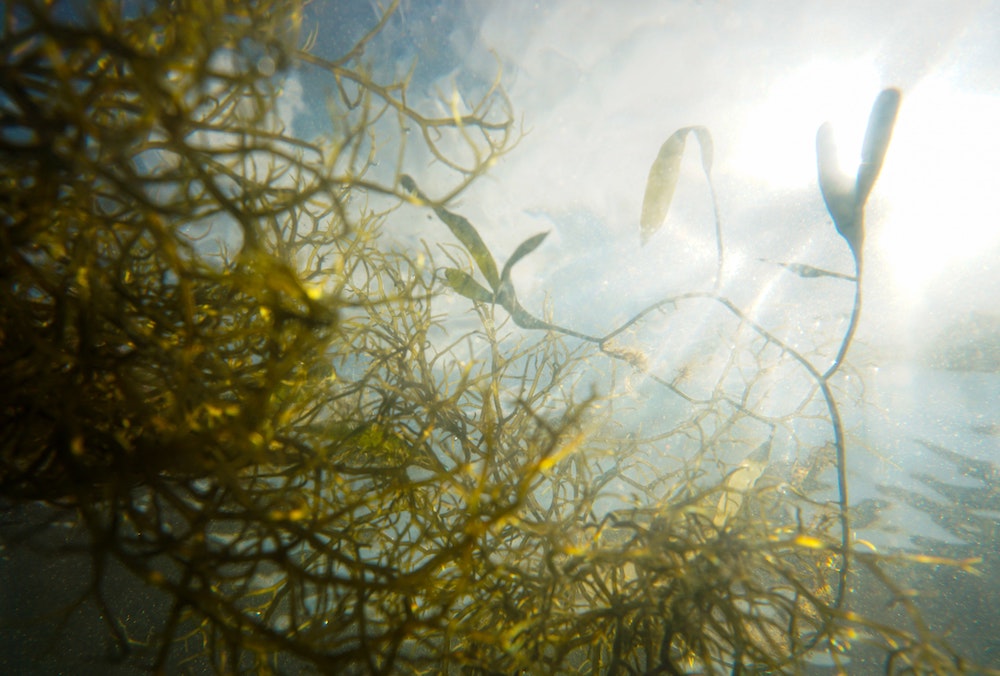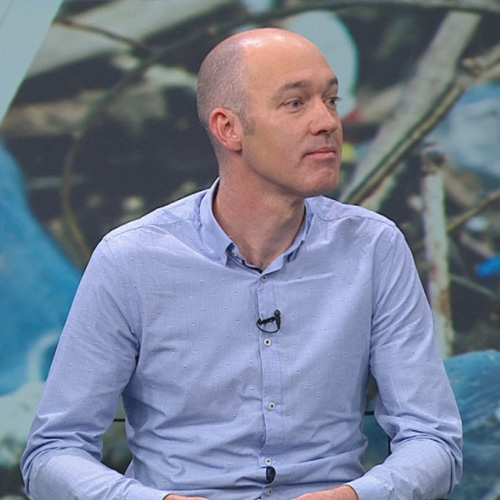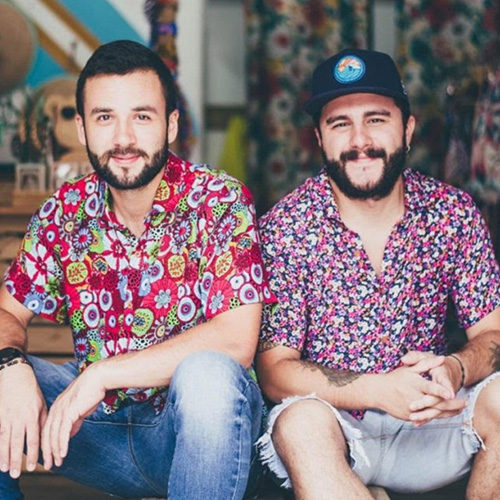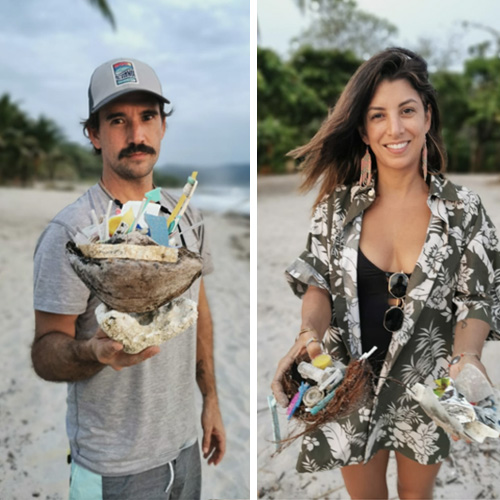
In the United Nations Decade on Ecosystem Restoration, the focus needs to shift to regenerating some of the world’s most fragile ecosystems and how PET polymers can do more to support people and the planet.
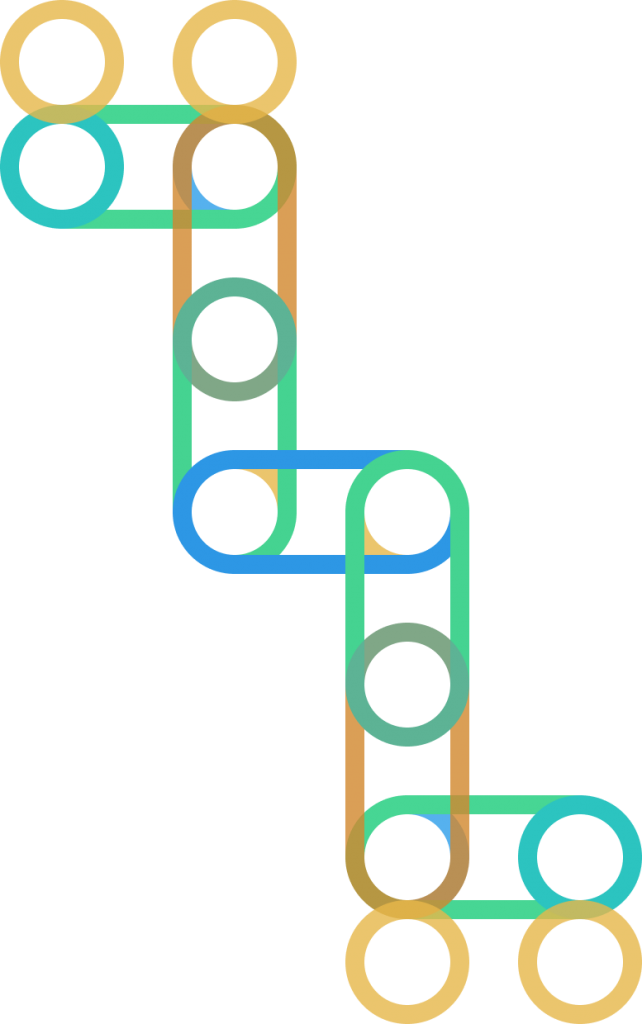
With too many of the world’s ecosystems being pushed to breaking point with dramatic consequences for some of the 8.7 million other species we share our planet with, there have been a host of studies published recently spelling out the considerable strain being placed on the planet. The most recent report by the Intergovernmental Panel on Climate Change painted a bleak picture of our collective response to some of the most pressing issues we face as a species.
Despite the desperate tone of the report, not all hope is lost and the saving grace is that there are plenty of solutions that can be mobilized to arrest the damage being done to the planet’s most important ecosystems. As the world continues to evolve its collective approach to plastic waste and single-use consumption, systemic change is required and we’ve seen the creation of new economic thinking, environmentally-friendly products and government regulations that feed into how we tackle the problem of waste.
Investors are adding environmental and social investment criteria to their decision-making, outlining a clear financial incentive for plastic manufacturers to incorporate a regenerative approach that puts people and place on the balance sheet.
In this article we take a look at some inspirational projects from across the globe, initiatives that are benefiting from partnerships with plastic producers and consumer brands, as well as some projects that would reach even greater heights with further help from all of us.
As part of AdaPETation’s mission to bring solutions together and put the polymers industry on a regenerative path we’d love to hear from you – especially if you have:
a) an ecosystem restoration project that needs support
or
b) you are interested in supporting some of the projects outlined below to increase their chances of success.
Contact the AdaPETation Network if you see something of interest and want to get involved in ecosystem restoration or if you’re already working on something that you feel deserves coverage on the network.
MARINE ECOSYSTEMS RESTORATION
Our oceans stand on the frontlines of climate change, making the health of marine ecosystems a marker for the health of our planet.
Despite dominating our planet in terms of area and volume – taking up more than 70% of global surface area – the oceans are home to just 1% of our biomass. But they do dominate the animal kingdom with 78% of animal biomass living in the marine environment and as such act as enormous carbon sinks.
Issues such as overfishing including destructive practices such as bottom trawling are having a dramatic impact on the loss of species in the world’s oceans, there has also been plenty written about the amount of impact of waste making its way into our oceans too.
Both issues are placing strain on these crucial ecosystems, which it is estimated have absorbed 39% of all the carbon dioxide produced in the post-industrial age and are responsible for receiving 2 gigatons (and rising) of carbon dioxide emissions a year. All this makes our oceans one of the principal areas for addressing both biodiversity loss and helping to arrest climate change.
With estimates that up to one garbage truck of plastic enters the ocean every minute, amounting to about 8 million tons each year, there have been some obvious questions raised about what can be done by plastic producers to help clean up some of the waste being produced and return our oceans to rude health. The negative consequences of plastic waste has motivated consumer goods companies to concentrate most of their cleanup efforts in this area and while the response is still relatively small compared to the scale of the problem being faced, there are promising initiatives in this area that offer optimism that we’re not too late in the bid to save our oceans and the wildlife that inhabits it.
Initiatives that deserve support.
Verra and Second Life
In March 2022, Verra issued the first plastic credits generated under its Plastic Waste Reduction Program to a cleanup project spearheaded by Second Life in Thailand. Taking a page from carbon offsetting, this exciting initiative shows there’s a demand for plastic offsetting and a mechanism to encourage the funding of grass-roots projects in different parts of the world, which is, in itself, an important step on the path to zero waste.
Following an extensive audit and review, Verra issued more than 650 waste collection credits and 60 waste recycling credits to Second Life Thailand, each credit representing one metric ton of plastic waste either removed from the environment or recycled. The revenue generated from these credits is crucial for an initiative like Second Life, as it allows them to scale their work in vulnerable communities with limited recycling infrastructure.
The innovative project has shown that plastic credits can serve an important function for companies that have taken steps to reduce their plastic footprint within their own value chain, and now seek to address plastic leakage outside their value chain. As part of the audit process in providing credit funding, Verra ensures that all projects like Second Life implement social and environmental safeguards to improve the livelihoods of workers and community members within the project’s scope.
With one successful applicant now trading in plastic credits, Verra’s scheme can now be rolled out to other similar projects which is great news for ocean cleanup organizations around the world.
More info:
Second Life
Verra Plastic Credits
TONTOTON
TONTOTON is working towards the realization of zero plastic coastlines one ton at a time through a plastic credit scheme, much like Verra and Second Life. The team works tirelessly to not only collect and recycle large quantities of non-recyclable plastic before it reaches the ocean, but also contribute to an emerging sustainable market by helping companies take responsibility for their plastic footprint. Vietnamese restaurant chain Pizza 4Ps recently got involved with the initiative to offset the impact of plastic from their current packaging. Together they track the amount of plastic packaging used in their retail products, while TONTOTON rescues and recycles an equal weight of post-consumer, non-recyclable ocean-bound plastic on their behalf.
More info:
TONTOTON
rePurpose
rePurpose is a global finance platform that’s had a big impact on how companies assess and solve their plastic footprint using plastic credits, accelerating the scale-up of innovative solutions that protect our oceans from plastic waste and infusing these into the core identities of the brands that get involved. As one of the world’s most trusted plastic credit programs, rePurpose has spent years exploring the feasibility of credits in incentivising action and funding troops on the ground that do the work. Together with their coalition of over 100 corporate partners, rePurpose has assisted in the removal of over 7,000 tons of waste from oceans and rivers. And while they support efforts to enable global brands to engage with plastic credits and their Plastic Neutral certification, rePurpose has made it clear they think the sector should also ensure sustainability innovations focus on improving democratization and accessibility to all businesses, no matter their size.
More info:
rePurpose
The Ocean Cleanup
Dubbed “the largest cleanup in history”, The Ocean Cleanup has shown how industry can mobilize behind a cause, developing and scaling technologies in an effort to clean up our oceans and rivers. Their innovative interceptors have cleared nearly 1,400 tons of plastic from targeted areas, especially focussing on the “Great Pacific Garbage Patch”, on its ambitious goal of clearing 90% of floating ocean plastic. The first few operations might be a drop in the ocean considering the investment to date, but the mission has at least furthered awareness of the type of plastic waste that’s accumulating in the oceans – it’s predominantly waste from deep sea fishing. The initiative has recently re-focused on cutting off the flow of plastic at source, working with the Coca-Cola Company as a global implementation partner to reduce the amount of plastic making its way in the world’s rivers. Using advanced technology to intercept and recycle plastic in 15 major rivers around the world.
More Info:
The Ocean Cleanup
Coca-Cola Joins Ocean Cleanup
Prevented Ocean Plastic
Another example of a business seeking to stop the flow of plastic before it makes its way into the oceans is rPET manufacturer Bantam Materials. Its Prevented Ocean Plastic program is a global recycling initiative which helps tens of thousands of people around the world to earn a living and clean their coastlines, and currently prevents over 1,000 tons of plastic from reaching the ocean each month. The program gives brand owners and customers the ability to clearly track the materials in their products back to specific coastal communities in at-risk areas like South East Asia, South America and the Galapagos Islands, the Mediterranean, Central America and the Caribbean. By enabling consumers to make better informed choices about the types of plastic packaging they’re choosing to buy, the initiative aims to show companies that supporting recycled plastic collected from coastlines at scale is not only good business for them, but more importantly for our oceans. It estimates that it has recycled 10 billion bottles and contributed USD$250 million to developing communities, preventing plastic waste from reaching the ocean since 2005.
More info:
Prevented Ocean Plastic
Bantam Materials
Skizo Shoes
Portugal-based startup, Skizo Shoes, is showing the world that one person’s trash is another’s treasure, giving eco-friendly consumers a chance to create their own unique piece of fashion created with rubbish recovered from the rivers, beaches and oceans close to Porto and Lisbon. Skizo founders André Facote and Andreia Coutinho saw the perfect opportunity to not only fund environmental cleanups, but change the way we think about fashion. Their message is clear – production by order only is the future, as it will create less waste, use fewer natural resources and decrease the damage caused by fast fashion and impulse buying.
More info:
Skizo Shoes
Fundación Sol Pacifico
A Mexican initiative to clean up and reduce waste in the coastal area of Jalisco. Fundación Sol Pacifico is a venture established by PET packaging and recycling group, Evertis & Selenis (IMG Group). The foundation has focused on education and has been successful in encouraging communities to care for the environment through separation and collection programs for PET plastic materials and by attaching a value to waste and promoting recycling in the local population.
More info:
Fundación Sol Pacifico
If you know of a PET-powered initiative supporting marine ecosystems restoration please share with us any information that you think we might find useful.
- COASTAL WETLANDS ECOSYSTEM RESTORATION
Like forest and peatlands, coastal wetlands have come under severe pressure and restoring mangroves, salt marshes, and seagrasses are critical as a solution to global warming as well as restoring biodiversity and ecosystem services provided by these. According to Project Drawdown, protecting 6.1–7.2 million hectares of currently degraded coastal wetlands by 2050 and allowing natural regrowth to occur could sequester0.99–1.01 gigatons of carbon dioxide by 2050. Bioplastic producers have found a novel way to convert this activity into one with double impact, replacing the use of fossil fuels with bioplastics made from seaweed. As yet this is still to gain traction in the PET polymer industry but it’s having success in other areas.
Initiatives that deserve support.
Zerocircle
Founder Neha Jain turned to the very thing she was trying to protect for inspiration in her quest to find a solution to plastic waste working its way into the oceans. Using sustainably farmed seaweed, Neha and the team at Zerocircle have created carbon-neutral plastic alternatives. Zerocircle operates on a B2B model, selling its solution to environmentally conscious consumer brands that want to reduce their carbon and plastic footprints within the processed food, personal care, medical and fresh food industries. Currently, Zerocircle seaweed plastic will be able to replace LDPE (low-density polyethylene) and PP (Polypropylene) types of plastic and has been used to replace flexible food packaging. By increasing the amount of seaweed grown in key locations around India’s coastline, the company is also playing an important role in improving biodiversity, water quality and buffering the negative effects of ocean acidification.
If you know of a PET-powered initiative supporting coastal wetlands ecosystems restoration please share with us any information that you think we might find useful.
- CORAL REEF ECOSYSTEM RESTORATION
We lost more than 14% of our coral reefs between 2008 and 2019 alone, the equivalent of all the living coral in Australia, making these systems one of the most vulnerable on the planet. Healthy reefs are immensely important for marine biodiversity and the global economy, generating roughly USD$36 billion a year in tourism and providing sustenance to over 500 million people. As they die, so does life in the ocean and on land.
Initiatives that deserve support.
PUR Projet
Working with cosmetics brand Eau Thermale Avène, PUR Projet has been able to implement widescale, community-based coral restoration and conservation projects in Bali. Since the project launched in 2019, they have successfully installed over 17 underwater structures using advanced Biorock technology, and transplanted over 2,040 corals among 20 different species. Because community lies at the core of this initiative, PUR Projet has empowered local residents with the knowledge and infrastructure needed to drive this project by themselves in future, as well as forming teams to develop a number of income generating initiatives that feed back into creating a fully functional natural reef system and preserve the region’s natural capital.
More Info:
PUR Projet
Reef Design Lab
Alex Goad of Australian-based company Reef Design Lab has been making waves with his Modular Artificial Reef Structure (MARS), a ceramic, 3D printed system for constructing reef habitat without the need for heavy equipment and designed to be used in conjunction with sustainable coral farming and reef restoration projects. In 2019, Volvo got involved with the project to create an eco-friendly seawall along the coast of Sydney’s harbor, made from marine-grade concrete and reinforced with recycled PET plastic fibers. Not all ocean plastic is bad when great minds put it to good use! The wall is designed to mimic the root structure of native mangrove trees, providing a habitat for marine life that aids in sustaining coastal biodiversity.
More Info:
Reef Design Lab
If you know of a PET-powered initiative supporting coral reef ecosystems restoration please share with us any information that you think we might find useful.
- RIVER ECOSYSTEMS RESTORATION
With about 80% of ocean plastic originating from over 1,000 rivers, managing existing pressures on these systems is key to building climate resilience and improving the quality of life for those living along their shores.
Initiatives that deserve support.
Litter4Tokens
A brilliant initiative that empowers people living in impoverished communities around South Africa to not only clean up litter and restore the environment around them, but also restores a sense of pride in giving them the means to provide for their families. In vulnerable areas across the country, plastic and other litter often makes its way into river systems and the ocean due to a critical lack of recycling infrastructure and education. Launched by ex-surfer Clare Swithenbank-Bowman in 2015, Litter4Tokens has to date prevented more than 600,000 bags of litter from reaching the ocean, while employing over 1,600 people who would otherwise struggle to survive. Waste collected in exchange for tokens makes its way back to retailers or recycling plants, and retailers then restock token shops with essential items thanks to help from donors. The initiative is supported by PETCO, a Producer Responsibility Organisation within South Africa’s recycling landscape that uses its revenue to drive recycling activities, support collectors, guide product design and build the required local recycling infrastructure necessary to keep the PET value chain moving.
More info:
Litter4Tokens
PETCO
The Litterboom Project
Through the hard work of a very small team, The Litterboom Project (TLP) has managed to prevent over 700 tons of plastic from reaching our oceans. Because roughly 90% of marine plastic pollution originates from river systems, TLP founder and CEO Cameron Service knew the only way to make an impactful difference was to adopt a proactive approach, which has since started scaling into a systematic upstream program.
Service launched the project in 2017, initially targeting hotspots along six rivers in the lush coastal province of KwaZulu-Natal, South Africa. With assistance from the Pristine Earth Collective, TLP made its way to Cape Town in June 2020 and is now active in 10 main river systems within these provinces. A floating boom is anchored across a river, acting as a catchment for all the waste flowing downstream. A trained team made up of people from the surrounding communities stay on site throughout the day, continuously removing plastic and sorting for recycling.
Plastic Whale and Vepa
On a mission to create cool things with waste collected from river, canal and beach cleanups across the Netherlands, Plastic Whale has not only turned plastic fishing into a fun community activity that anyone can join, but they’re also showing the world how easy it is to create economic value from the things we throw away. With the slogan “we collect, we create, we educate”, Dutch furniture company Vepa teamed up with Plastic Whale and LAMA Concept to create some very special designer pieces after fishing up more than 150,000 PET bottles and turning them into PET foam/felt. Even the company’s own residual waste goes back into creating new products. The Plastic Whale project is for every company that wants to give substance to its sustainability targets.
More info:
Plastic Whale
Vepa
If you know of a PET-powered initiative supporting coral reef ecosystems restoration please share with us any information that you think we might find useful.
- REGENERATIVE AGRICULTURE & SOIL RESTORATION
Responsible for roughly 25% of carbon emissions, which is only exacerbated as populations rise and more trees are felled for farming and livestock there’s an important argument to be made for regenerative agriculture that not only reduces deforestation but also focuses on soil restoration – one of the areas highlighted by UNEP and Project Drawdown as a cost effective way to fight climate change.
Surprisingly given the enormous significance of PET in extending the shelf life of food products, making it an important ally of the global farming sector and food industry, there’s little focus by the industry on strengthening its role in making our food chain even healthier. It’s an area in which more could be done.
Regenerative agriculture is an approach to farming that aims to improve soil health and soil fertility – as well as protecting water resources and biodiversity. Restoring soil health helps draw down and capture increased levels of carbon in soils and plant biomass. Healthier soils are also more resilient to the impacts of climate change and can increase yields, helping improve farmers’ livelihoods.
Project Drawdown estimates that regenerative agriculture on an estimated 11.84 million hectares of current adoption could increase to a total of 221–322 million hectares by 2050, which could result in a total reduction of 14.5–22.3 gigatons of carbon dioxide, from both sequestration and reduced emissions.
Regenerative annual cropping could provide a US$2.3–3.5 trillion lifetime operational cost savings and lifetime net profit gain of US$135–206 billion on an investment of US$79–116 billion.
Initiatives that deserve support.
Go Steward
There are plenty of ways emerging to support the growth of regenerative agriculture including secured, interest-bearing loans being raised by the Go Steward lending crowd-funding platform. The platform which enables investors to back unique agricultural projects or a collection of regenerative businesses has raised $5.5m for small farmers to date, a drop in the ocean.
More info:
Steward
Nestlé
As part of its roadmap to Net Zero the Swiss food giant came to the conclusion that the most effective way to reduce its greenhouse gas emissions would be to move towards regenerative agriculture. Nearly two-thirds of its GHG emissions currently come from agriculture so it has pledged to source 50% of its key ingredients through regenerative agricultural methods by 2030 (14 million tonnes). Furthermore, protecting the quality of natural waters and stewarding water resources is essential to renew water sources for its bottled-water business; Nestlé Waters.
More info:
Nestlé Sustainability
If you know of a PET-powered initiative supporting regenerative agriculture and soil restoration please share with us any information that you think we might find useful.
As the ancient proverb goes, “The best time to plant a tree was 20 years ago. The second best time, today”. If you want to take a step towards fostering a regenerative mindset, or improve the impact your current value chain has on the environment, we’d love to hear from you and help support the good work you’re doing. Get in touch with us and take advantage of our extensive global network, and work together to restore some of our fragile ecosystems.
Sign up to the AdaPETation network and share with us what you can do to contribute to the United Nations Decade on Ecosystem Restoration.
Share it
THE HISTORY OF PLASTIC
Throughout the history of plastic, PET has been crucial in keeping food fresh with lightweight and durable packaging solutions that have helped reduce food waste for almost a century. Learn all about the invention of plastic and the important role it has played feeding people and saving the lives of humans and elephants in the adaPETation® timeline of the history of plastic.

